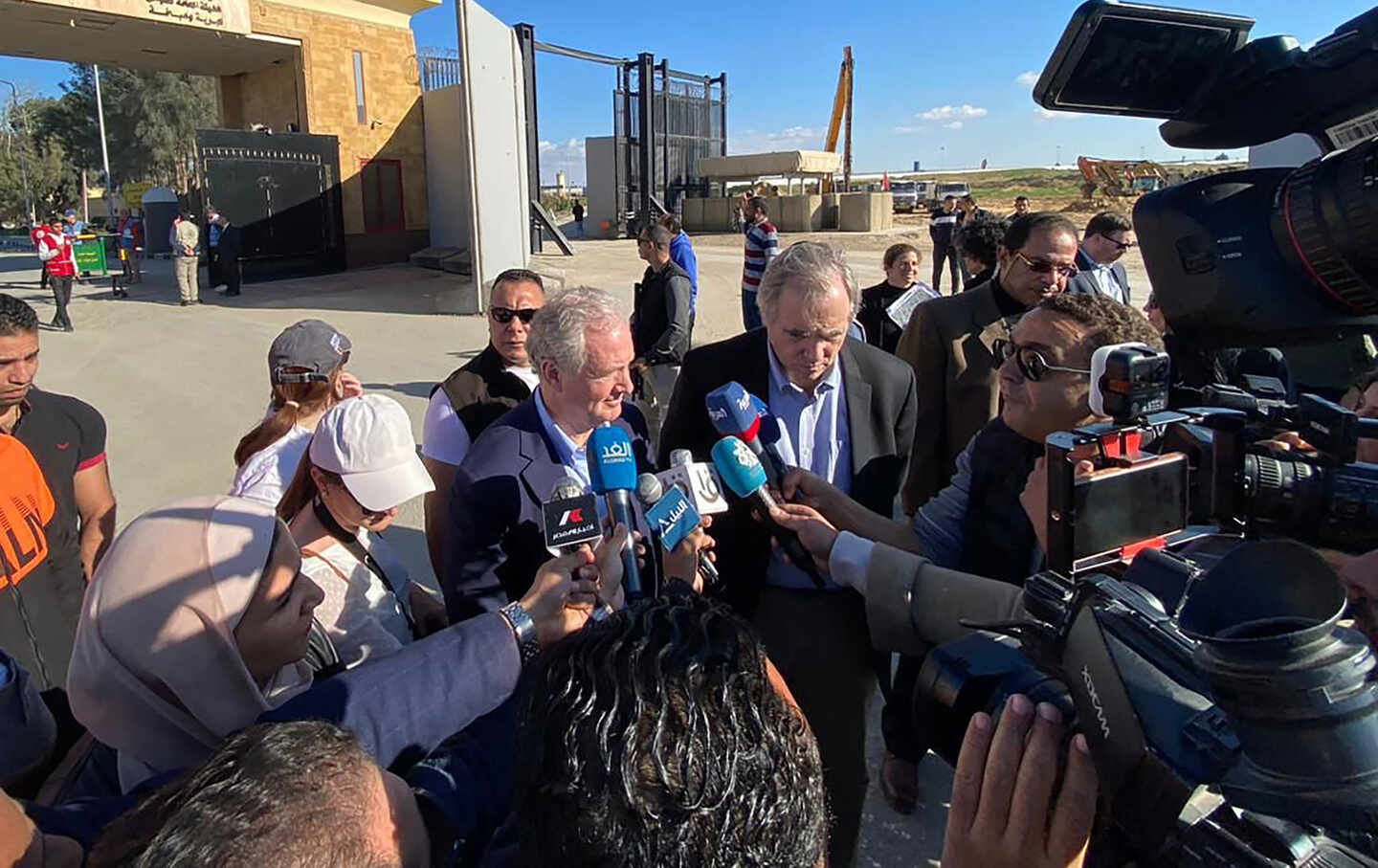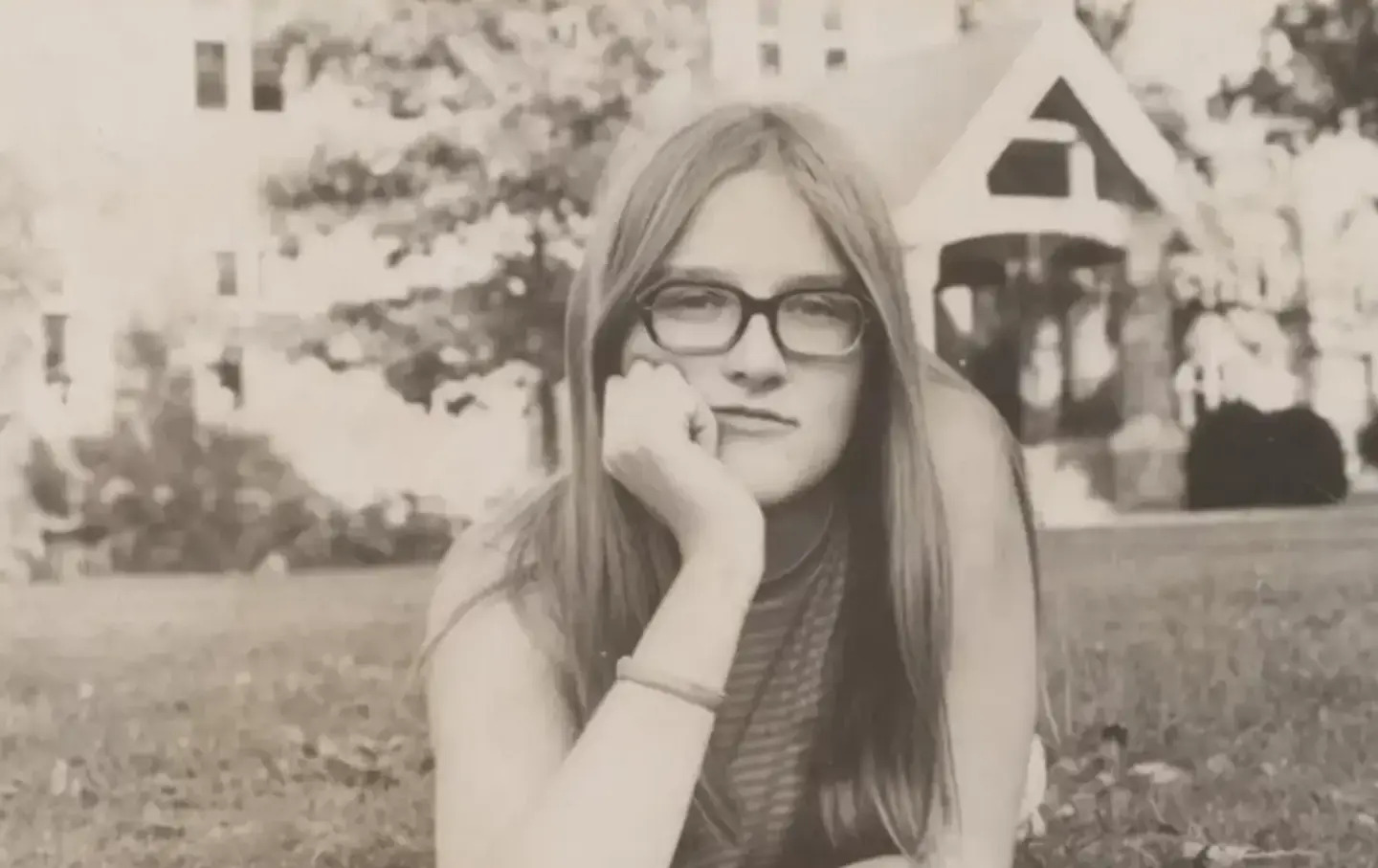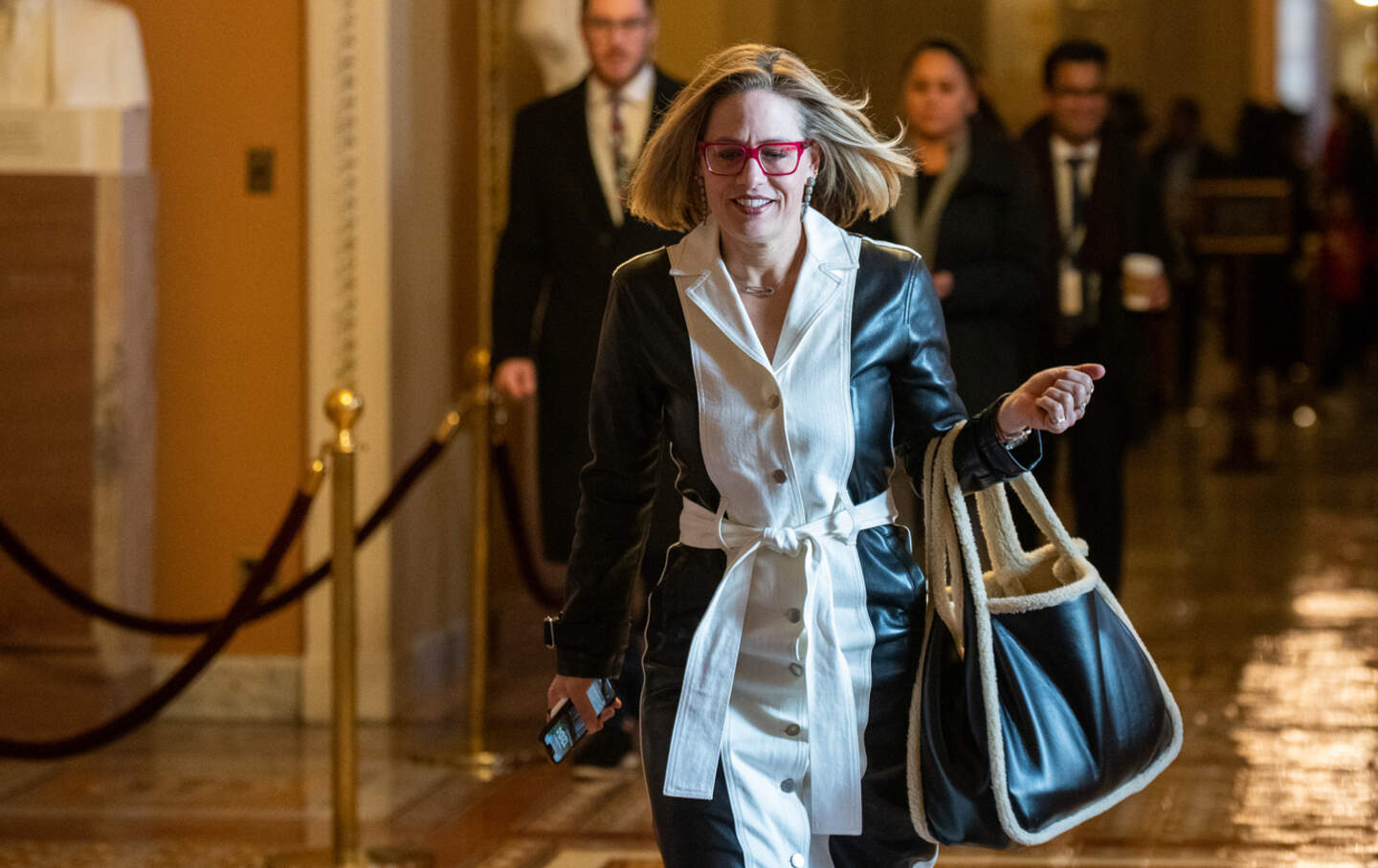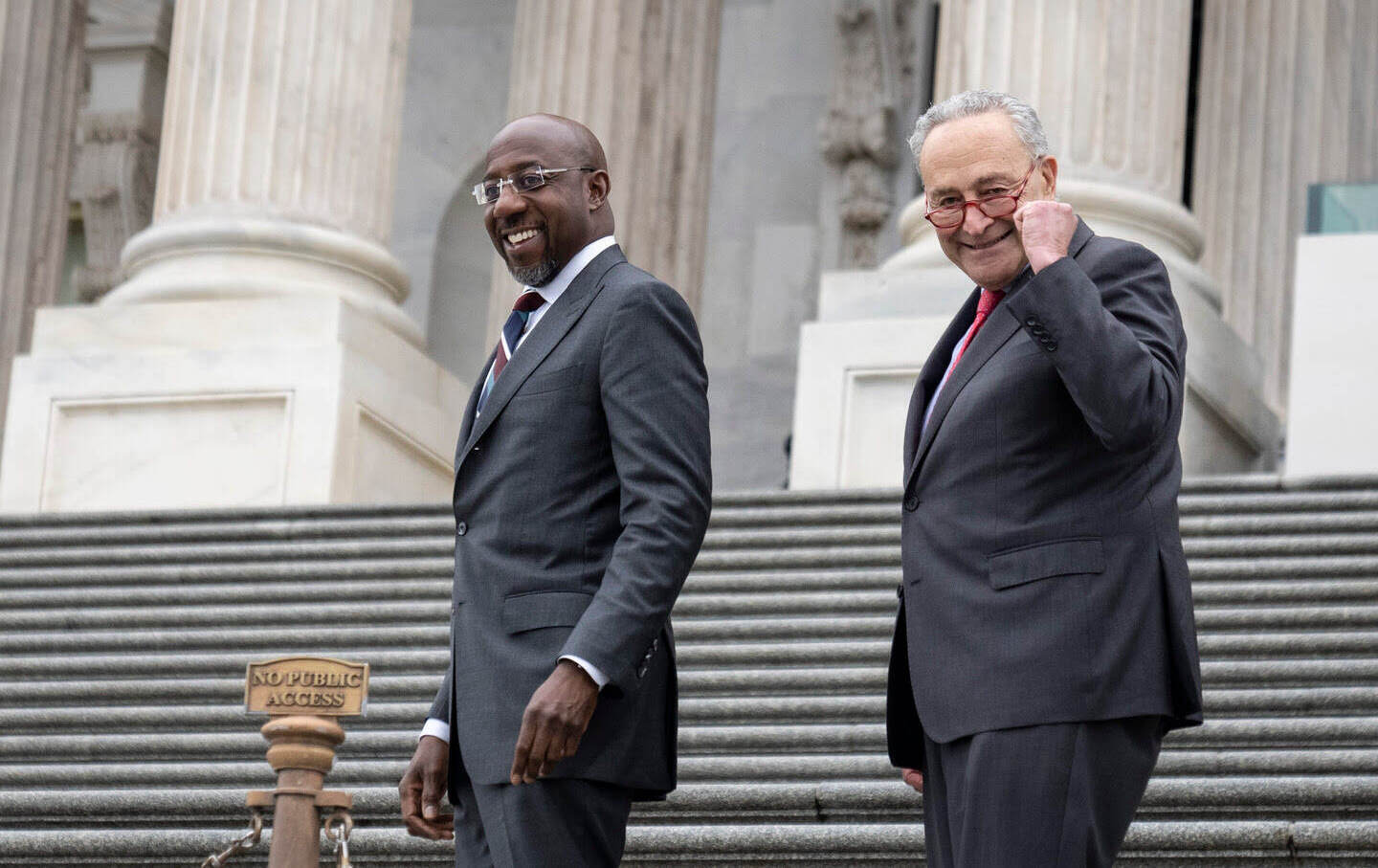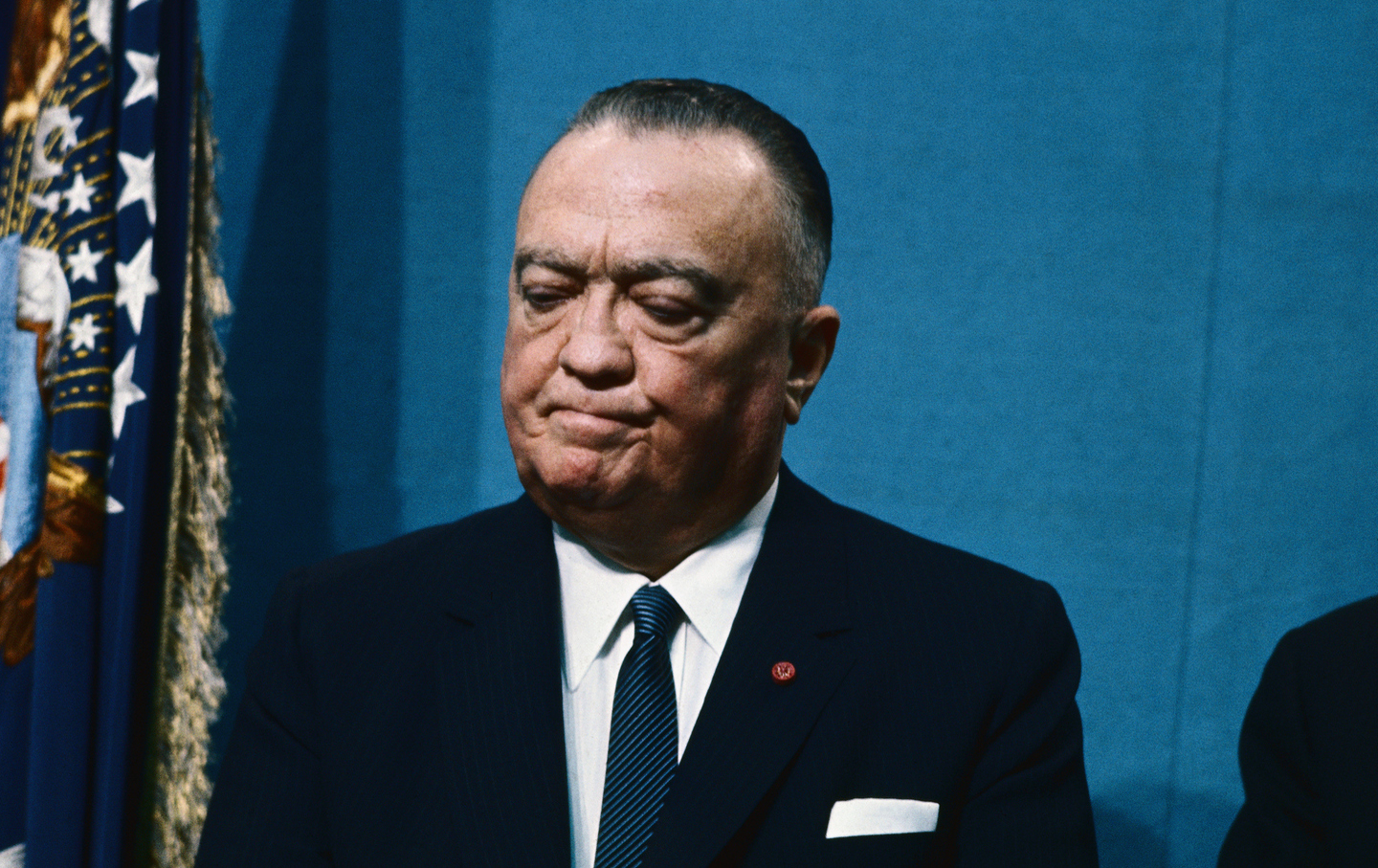Israeli Jews and Palestinians Standing Together
A conversation about the biggest Jewish-Palestinian grassroots group in Israel.
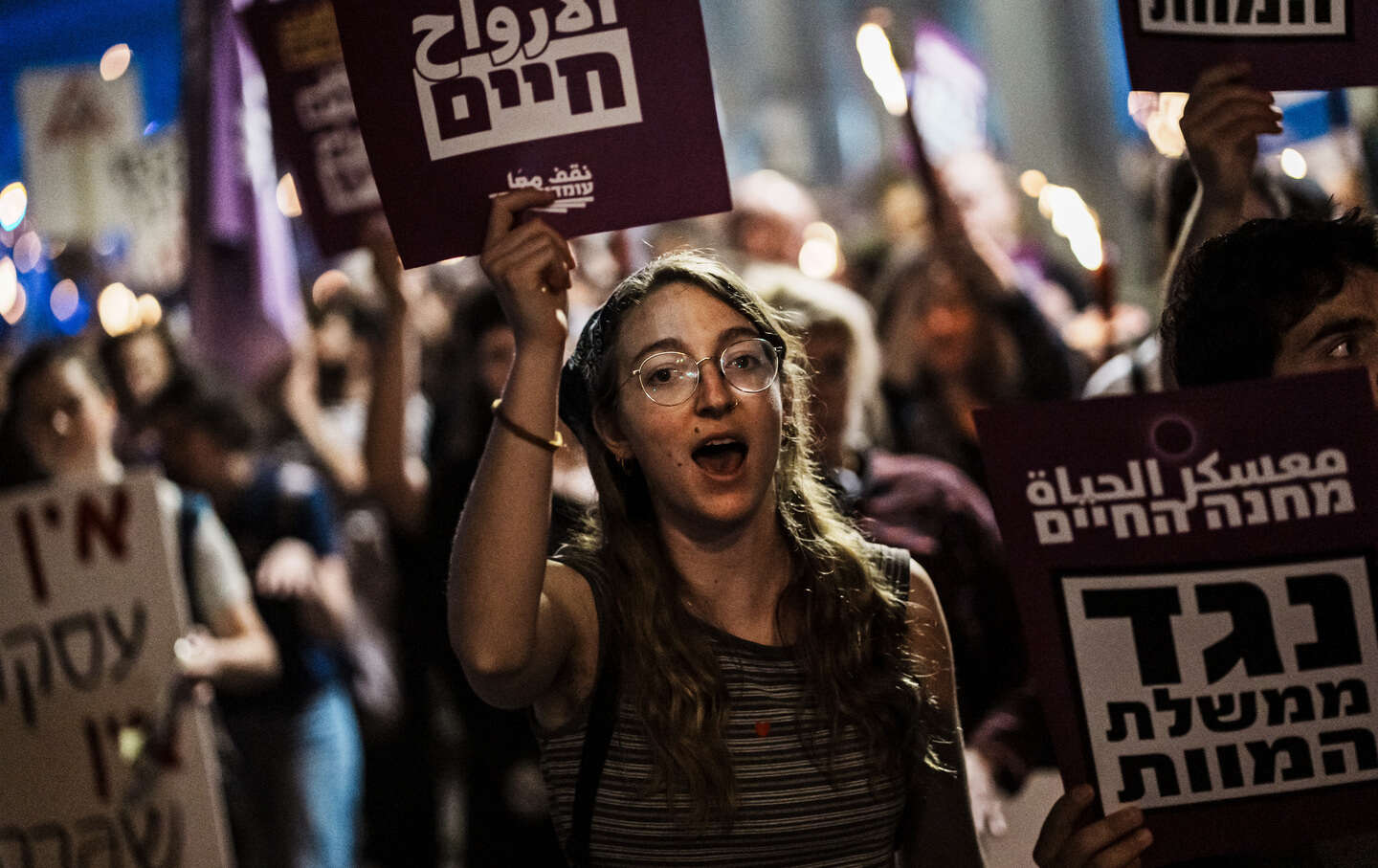
Protesters from the Standing Together organization march with other demonstrators through central Jerusalem, Israel, on April 2, 2024.
(Marcus Yam / Los Angeles Times)Standing Together is an organization of Palestinians and Jews in Israel working not only for a cease-fire and the rebuilding of Gaza but also for equality and security and social justice for Palestinians and Israelis, and for the establishment of a Palestinian state. It’s the biggest Jewish Palestinian grassroots movement in Israel. Sally Abed is one of its leaders. She’s a Palestinian citizen of Israel, and was recently elected to the Haifa City Council.
This interview has been edited and condensed.
Jon Wiener: Everybody wants to know what you would do about Hamas right now. What do you tell them?
Sally Abed: We need to ask ourselves, when was Hamas the weakest? Hamas was the weakest when the Palestinians had the most prospects for peace. That was in the ’90s. That’s when Hamas was the weakest.
When you talk about Hamas, you also want to talk about who needs Hamas, and the extremism on the other side that in many ways has created Hamas—through the blockade, through starvation over decades, through oppression over decades. That’s what creates extremism. So if you really want to talk about Hamas, we also need to talk about the root cause of extremism. For the last decade and a half, Benjamin Netanyahu and the Israeli government have negotiated only with Hamas, while completely neglecting and overlooking the PA, Palestinian Authority, in the West Bank. That was intentional.
Now, let’s talk about Hamas and what can be done. We need to ask ourselves, did military solutions ever work? And the answer, the very simple answer, is, “No. Never. That never happened.” Trillions of dollars were put in the Middle East to eradicate extremism, and that never worked, even after millions of lives were lost and nations were destroyed. That didn’t work. We still have ethnic apartheid. We have gender apartheid. We have ethnocracies all across the Middle East.
JW: Standing Together is not just an idealistic vision of a peaceful future for Israel and Palestine. You are organizers. You have a strategy for change. Tell us a little about that.
SA: We’re actually not idealistic at all. We’re ideological. We have a deep-rooted ideology of equality and social justice. And we have a theory of change, of how we do it. We acknowledge the hegemony of Israeli society and the control and the power differential that it has in this situation.
We understand that we need to build the political will within the Israeli public to end the occupation, to end the military control, and take real steps towards peace. To do that, you need a deep shift in the Israeli public that for many decades has been told that’s not possible. “In order for us to be safe, we absolutely need to oppress, incarcerate, control, and kill Palestinians. We have to.” That’s what they’ve been told.
Creating that shift has been almost a mission impossible. But October 7th, in many ways, shattered that conception— or at least challenged it deeply. We are at the point where we see ourselves as the social movement that will lead that shift in paradigm. I don’t say that lightly. I don’t say that to brag. In order to change reality and change institutions politically, socially, culturally, to shift a society, you need to build a social movement. And that doesn’t only require shouting the ugly truth, but organizing people, building leadership, building the communities on the ground.
JW: I was surprised to see a report in Haaretz that “Standing Together’s message of solidarity and vision of a shared future has been on a constant rise since the war started.” How big is Standing Together right now?
SA: Not big enough. But we are definitely growing. I think in many ways we are operating in a vacuum, which is helping us. It feels lonely in many ways. But we have amazing partners. There is an amazing shared civil society ecosystem, but not a social movement that can compete with the right wing right now. Occupy, expel, resettle: That’s their solution. We need to compete with that.
At the moment we are at 5,300 members. However, our support base is tens of thousands of people. There are over 250,000 Israelis, both Palestinian and Jewish, who subscribe to our newsletter. And we reach millions on our social media both here and abroad. So we are definitely growing. Not enough, but we are seeing positive shifts in the Israeli public and how they receive our messaging.
JW: In Israel, you’ve been organizing what you call Solidarity Conventions. Tell us about those.
SA: The Solidarity Convention was the very first reaction of our movement after October 7th. We understood that we have two main roles. One is to understand how can we build this new alternative idea for the public in Israel and compete against the right; but the immediate task was to de-escalate and create a space of solidarity, a space of shared grief—and shared future.
One of the most powerful things that you can do together, especially if you identify as two peoples that have been in an endless war, the most powerful thing you can do is to grieve together. Then you can also think together. You can dream together. You can act together. So we created a network of Jewish-Palestinian solidarity watches across the country that also led Jewish-Palestinian solidarity rallies. In Palestinian towns, Jewish towns, mixed towns and mosques. Even in wedding venues.
When we started, we weren’t allowed to protest. It was illegal. Obviously, now it’s different, and now our messaging has escalated and also our numbers have escalated. We were able to get from hundreds of people at the beginning to thousands of people right now that are rallying for a cease-fire agreement to stop the destruction and killing and return the hostages home, and obviously for peace and ending the occupation.
JW: I know you’ve been especially active on college and university campuses. What are the issues there? What do you do to help?
SA: College campuses are a crucial space. With a segregated educational system, an Arab educational system and then a Hebrew one, younger Palestinian and Jewish students don’t meet at all. The university is the very first meeting place in Israel for Palestinian and Jewish youth. In the last two decades, the universities have been depoliticized, while also being taken over by the right—the student unions, the student institutions, the university institutions.
In the last five years, Standing Together has been organizing students on campuses. And we were very lucky to be able to have those communities already organized on our campuses in order to be able to tackle the hostility after October 7th. At that point hundreds of students were expelled from university, or were harassed physically and verbally on campus, especially Palestinian, Muslim women and men.
But we created a campus for all, a network of hundreds of students from different backgrounds across the country, and we created support groups there, legal support, social work support, and also the leadership necessary to create the safe spaces for us to work. And one exciting thing is that we have been running people for student union leadership, very much under the radar, with a lot of resistance, a lot of incitement and hate that our students have received.
We have been able to elect 14 different student representatives since October 7th on various campuses. Eight of them are Palestinian. That’s amazing. We are getting to a point where we are the group on Israeli campuses with the most elected student representatives.
JW: I saw in The Jerusalem Post that you organized convoys recently to deliver food supplies to help starving Palestinians and Gaza. Tell us about that.
SA: We tried to do that a couple of times. What’s happening in Gaza with hunger is not being reported in Israel. So we wanted to deliver crucial aid to Gaza, but also create a wave of solidarity within the Israeli public around what’s happening and increase the awareness of what’s happening.
Unfortunately, the first time we were stopped 10 kilometers before the borders by the Israel Border Police. They announced it was a military area, so we weren’t allowed to go in. At the same time, dozens of buses with hundreds of settlers from the West Bank travel every day from the West Bank to Gaza to block the aid trucks. Obviously, they have a free pass from the police. They are organized by the same minister who is in charge of the police.
We tried again the week after that. We got a little bit closer. We got into some altercations with the settlers, and the police did not have any intention of protecting us from these settlers, who are armed. We didn’t want to put our activists in jeopardy. Instead we sent the food to the West Bank, where there are tens of thousands of families right now who are being collectively punished and not being able to come to Israel to work. They are heavily dependent economically on coming into Israel, and Israel revoked their permission to come. So we see a wave of unemployment and poverty and food insecurity in the West Bank right now as well. So we sent food there.
JW: Can you tell us a little about your own personal history? You are a Palestinian citizen of Israel. Did you grow up in a political family? Did you learn about activism as a kid from your parents?
SA: Nope. Not at all. I think there are very few Palestinian political families in Israel. My father was quite active with the Communist Party in the ’80s, and then he got arrested. And then when he had us, he got a job, and he said, “OK, I’m done.” Same with my mom. Both of them are government workers, so they submitted to the conditions. They assimilated completely, and that meant depoliticizing completely.
I remember when I first started my activism, they were extremely worried about me. I think it’s gotten better. I think they understand my passion for it. It’s not even passion; it’s like I don’t know what else I would do.
But in many ways, they also understand. They understand our theory of change, and they see the tangible change that we’re making on the ground. And that’s one of the most validating things there has been for me: to see my parents getting politicized, and my brothers, who didn’t care at all, being politicized with me, and being engaged with me. That’s been very validating—to see the people in my personal environment getting convinced about what I do. So I’m less scared, and more passionate about it.
Thank you for reading The Nation!
We hope you enjoyed the story you just read. It’s just one of many examples of incisive, deeply-reported journalism we publish—journalism that shifts the needle on important issues, uncovers malfeasance and corruption, and uplifts voices and perspectives that often go unheard in mainstream media. For nearly 160 years, The Nation has spoken truth to power and shone a light on issues that would otherwise be swept under the rug.
In a critical election year as well as a time of media austerity, independent journalism needs your continued support. The best way to do this is with a recurring donation. This month, we are asking readers like you who value truth and democracy to step up and support The Nation with a monthly contribution. We call these monthly donors Sustainers, a small but mighty group of supporters who ensure our team of writers, editors, and fact-checkers have the resources they need to report on breaking news, investigative feature stories that often take weeks or months to report, and much more.
There’s a lot to talk about in the coming months, from the presidential election and Supreme Court battles to the fight for bodily autonomy. We’ll cover all these issues and more, but this is only made possible with support from sustaining donors. Donate today—any amount you can spare each month is appreciated, even just the price of a cup of coffee.
The Nation does not bow to the interests of a corporate owner or advertisers—we answer only to readers like you who make our work possible. Set up a recurring donation today and ensure we can continue to hold the powerful accountable.
Thank you for your generosity.

